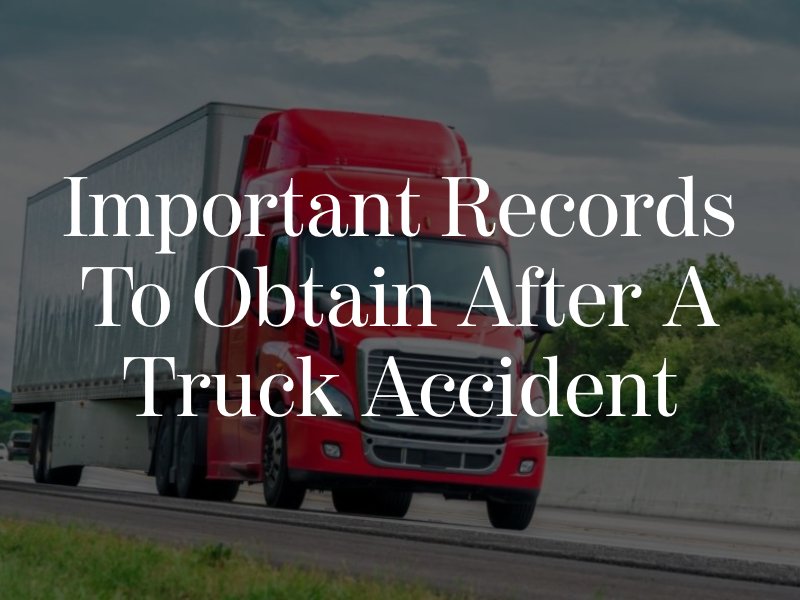A truck accident can have devastating repercussions for victims, leaving them seriously injured and unable to work. While a personal injury lawsuit is an option for truck accident victims, it is not always easy to recover fair compensation. Your case’s success largely hinges on the quality of evidence you have to support your claim. The following types of records are the most important to obtain after a truck accident.
Police Report
A police report is an official and unbiased report of your truck accident. Insurance companies typically consider this document to be more reliable than the testimonies of the people involved. There can be conflicting views as to what happened and who was at fault. In this case, a police report will provide an impartial view of what happened and help determine whose story is accurate. A police report can also help provide a causal link between your injuries and the accident, as well as property damage.
Medical Records
Request copies of all of your medical records once you have been evaluated by a medical professional, have received a diagnosis and a treatment plan. Similar to the police report, medical records also play a significant role in proving a link between your injuries and the truck accident, as well as their extent and severity. Documentation on your injuries may also assist with substantiating the position of the vehicles and the speed at which they were traveling at the time of the collision.
Black Box Information
If you were involved in an accident with a commercial truck, it should have a black box. This small device records data on the truck’s physical condition and the driver’s actions. Black boxes typically record 30-day periods before writing over the information. Some of the most common data it will contain is:
- The truck’s speed just before the collision;
- Whether there was a sudden deceleration;
- If and when the truck driver applied any brakes;
- Steering angles, throttle position, and tilt of the vehicle.
- The truck’s following distance;
- Force of impact;
- Airbag deployment times;
- If a seatbelt was engaged at the time of the crash;
- Maintenance issues, and more.
This information, along with the rest of the data a black box may contain, can be crucial evidence of the truck driver or company’s fault.
Electronic Logging Device Records
An electronic logging device is required for all commercial truck drivers by the Federal Motor Carrier Safety Administration. Drivers use this device to log their hours of service, which means it may contain information that can help you prove a truck driver violated the federal hours of service regulations. These rules dictate how many hours a truck driver is allowed to drive without taking a break, as well as outline their duties to inspect their vehicles.
Truck Maintenance Logs
Truck drivers and companies are required to perform daily inspections of their vehicles and note them in a maintenance log. They must also record any malfunctions and repairs that are needed. Information from maintenance logs may prove that a truck was driven when it wasn’t safe, contributing to the collision. A truck accident lawyer can help you force a truck company to preserve this critical evidence.



No Comment